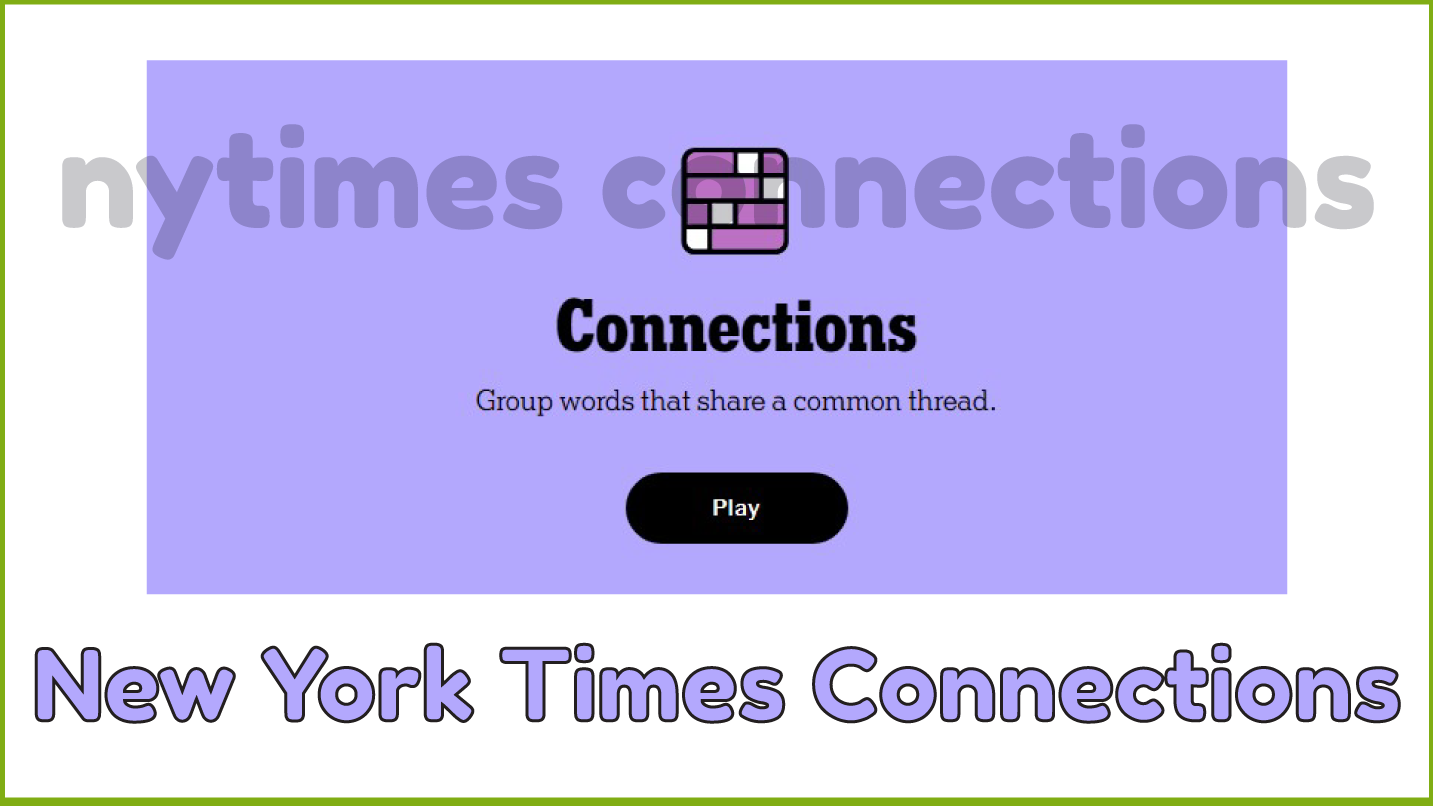Delve into the connection between loose, split, dead, and book in The New York Times crossword.
NYT Connections Information
| Category | Details |
|---|---|
| Game Name | NYT Connections |
| Developed by | The New York Times |
| New puzzle time | 12 PM local time |
| Year | 2023 |
| Session | 15th December 2023 |
| Recent Answer Updated | |
| NYT Connections Official Website | www.nytimes.com/connections |
If you’re an avid crossword solver, you’ve probably come across clues that seem completely unrelated at first glance. In The New York Times crossword, four words that may appear to have nothing in common are “loose,” “split,” “dead,” and “book.” However, as you dive deeper into the puzzle, you’ll discover a hidden connection among these seemingly disparate terms.
Discover the hidden relationship among these four words in The New York Times crossword puzzle.
Let’s start with the word “loose.” It can be used as an adjective to describe something not firmly or tightly fixed in place. In the context of a crossword clue, it could refer to an object that is not secure or tightly bound. For example, a clue like “Not tight” could be answered with the word “loose.”
Moving on to “split,” this word has multiple meanings and uses in everyday language. In a crossword puzzle, it often refers to dividing or separating something into two or more parts. A clue like “Divided down the middle” would lead you to fill in the answer as “split.”
Now let’s explore the term “dead.” In general usage, it typically refers to something that no longer has life or is no longer functioning. However,. It could mean motionless or stillness without life but can also be used metaphorically to indicate an end or finality. For instance, a clue like “Completely still” might be solved with the word “dead.”
Finally, we have the word “book.” On its own, it usually refers to a written work consisting of pages bound together. Yet again, in crosswords puzzles, the term “book” can have a broader interpretation. It could be used as a verb to mean making a reservation or securing a spot. For example, if you come across a clue like “Secure in advance,” you would fill in the answer as “book.

